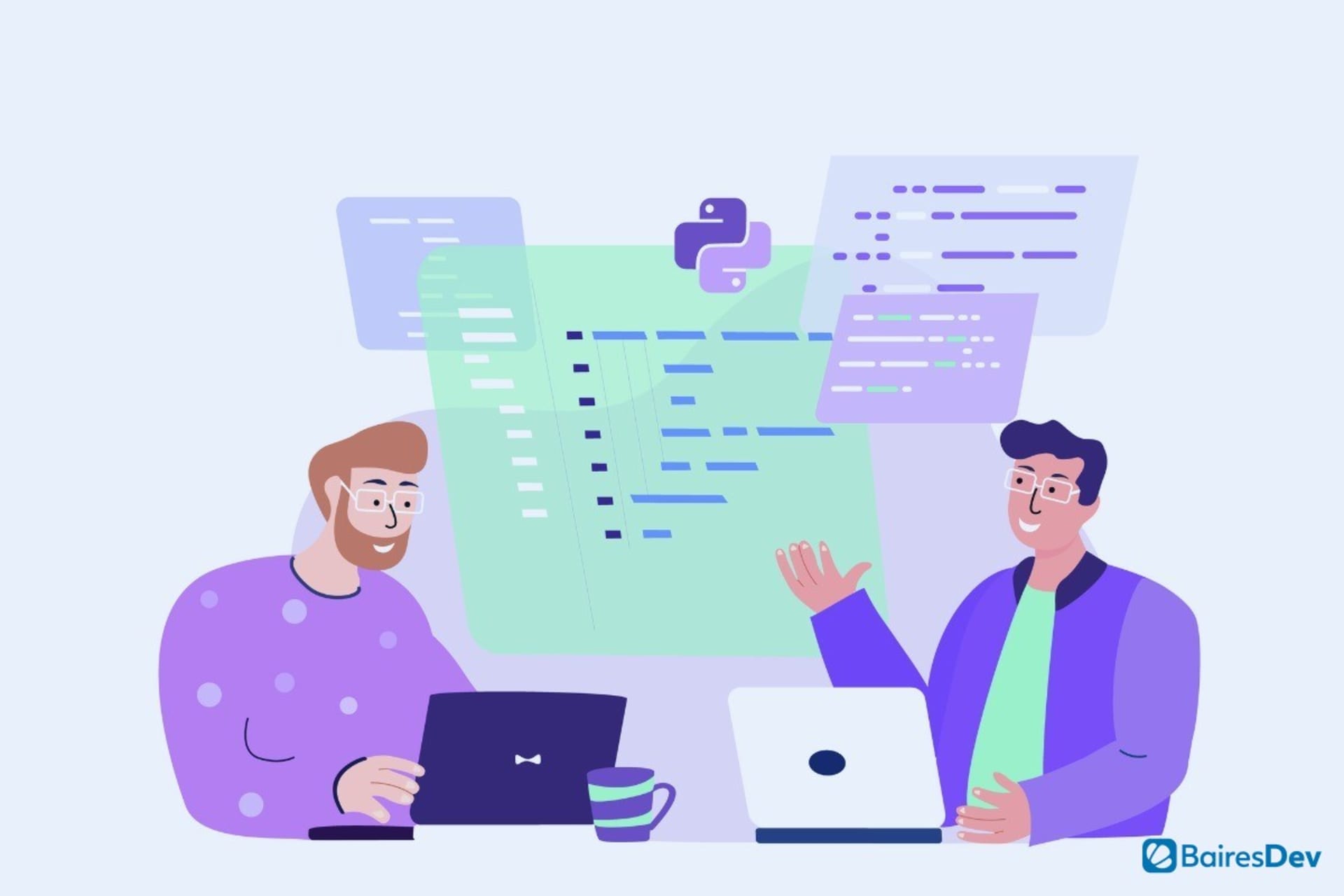This article is part of our Software Development Series.
Software development is a rich and complex world that requires skilled and seasoned professionals for the best possible results. However, no one is expected to become a pro overnight. There’s a lot of ground to cover for someone to become a software developer and engineer and there are also different paths a professional can take throughout their career.
No matter which way you choose, though, some skills are universal in the world of software development. Here, we outline some of them and offer our insight into why they’re so important for you to succeed.
#1 Cloud Computing
Understanding how to work with cloud computing and cloud-based applications is paramount for modern software engineers. Not only companies are choosing to use cloud solutions more and more often, but in an age where mobility and distributed teams are gaining the spotlight, cloud solutions have become part of the daily routines of many, if not all, enterprises.
Cloud-based solutions provide companies of all sizes with cost-savings opportunities and easier scalability possibilities while outsourcing the responsibility to deal with a considerable part of the infrastructure.
One of the most popular cloud platforms, Amazon Web Service (AWS), is also considered to be one of the most mature ones and is a good option for software developers who wish to start working with cloud computing. Also, since it’s currently in high demand, you can’t go wrong with adding proficiency in it to your list of abilities.
#2 Containers
We’ve recently talked a lot about containers and everything they can bring to the table as an application and service deployment solution. There’s no harm in revisiting this topic, given the importance containers have gained and how popular they’ve become lately. Containers make it easy for a software engineer to test their applications in a unified environment, deploy it to a cluster and easily scale it up or down to meet what was previously planned.
In the case of Kubernetes, it’s also possible to automate features and have the tool manage the containers for you. Evidently, it’s important to point out that working with containers, despite offering many advantages, isn’t simple to learn. Engineers should expect a significant learning curve and a rather complex ramp up process, so it’s important to go in prepared to invest time and effort to master this skill.
#3 Programming Languages
This one is a no-brainer, and honestly I don’t believe there’s a single individual who wouldn’t immediately respond “learning how to code” when asked about the most important skills to work with software development. In spite of its central role, however, this isn’t as simple as it seems. There’s an extensive list of programming languages a software engineer can choose from, each of which presents its own advantages and setbacks and can be better suited for a specific project.
According to Stack Overflow’s 2021 Developer Survey, the most in-demand programming language right now is JavaScript, followed by HTML and CSS, and Python, with SQL coming right behind. But we can’t forget about other very popular and highly used languages, such as C, C#, and PHP, which a software developer will be wise to have on their toolbelt.
#4 Low-code applications
As we highlighted in another blog post, the no-code and low-code movement is blowing up right now, offering companies of all shapes and sizes alternatives to the traditional path of software development. The fact that there is less coding involved in the process, however, doesn’t mean that it won’t benefit from the oversight of an actual software engineer.
So, in order to stay ahead of the curve and be able to offer customers a quality service, it would be interesting to look into low-code application development and what it entails. After all, the development of low-code applications will comprise over 65% of software development by the year 2024, according to an analysis conducted by Gartner.
#5 Data Structures and Algorithms
No matter which way you decide to go as a software developer, you need to understand how to manage data and elements of data structure, such as linked list, map, and set. Understanding data structure will also allow a software engineer to create algorithms that can make complex tasks much simpler and quicker.
Developing a well-rounded understanding of data structures and algorithms will allow you to use this knowledge as a foundation to build on. This will also aid you in strengthening your programming skills, in terms of programming languages themselves as well as database management.
#6 Databases
Knowing their way around databases is essential for any software developer or engineer. That’s where you’ll store, manipulate, and retrieve all of the information that will be used on the programming process. Not only is it important to have familiarity with how to handle a database and keep it organized, but it is also necessary to learn how to set it up. That is why this is actually a two-part skill, but in order to do so, a developer must become familiar with SQL.
SQL has over 3 decades of history and is still the go-to choice for programming, designing, and maintaining database systems. A software developer must become proficient with its main concepts and, if possible, at least familiar with its most common functions.
#7 Software Testing
Developing a new software or system is a complex process, but one that doesn’t end after you’ve written the last line of code. Testing and debugging are an integral part of the development life cycle, so familiarity with testing processes is essential to ensure the final product runs smoothly and provides the end user with an excellent experience.
The testing process itself consists of several stages, beginning with checking every line of the code to ensure that it has been written correctly and following the best practices for software development. This stage is called unit testing. Following this step, it’s time to look at the interaction between the different modules of the application, to make sure that they’re communicating correctly and that the integration is seamless. This is known as integration testing.
Last, but not least, we have the system testing, the final stage where the whole system is vetted and put into place for the team to confirm that everything is running smoothly and that the application is doing what it’s supposed to be doing. As a software developer, you should be aware of all of these types of testing and at least be familiar with their best practices.
What Other Skills Should Software Developers Know?
These are some of the most important skills a software developer needs to foster to successfully carry out their duties and responsibilities. There are, evidently, non-technical abilities that include attention to detail, leadership skills, conflict resolution, improvisational skills, and others that will be invaluable when dealing with complex projects and managing development teams. However, the technical body of knowledge acts as a foundation for the developer to build on and provide invaluable solutions to every client’s business needs.
FAQs
1. What are the most important skills for a software developer?
There are many important skills for a software developer to know, including programming languages, cloud computing, data algorithms, and testing.
2. How important is cloud computing for modern software engineers?
Cloud computing is an essential skill for modern software engineers because organizations and individuals are increasingly relying on the internet-based storage, retrieval, and security solution for a variety of data needs.
3. What programming languages should a software developer learn?
There are numerous programming languages a software developer should learn, including popular languages like JavaScript, Python, and Java. The most important languages depend on the developer’s specific needs and projects.
4. What are low-code applications, and why should software developers be interested in them?
Low-code applications are software that people can create with minimal coding or development knowledge. They reduce time, cost, and resources required, which leads to a faster and less complex development process. Even laypeople may be able to use them, thanks to their simplicity.
More related articles on our Software Development Series.





